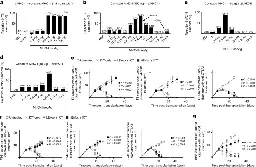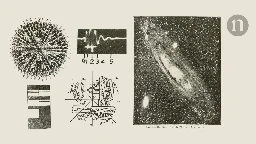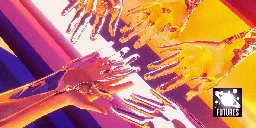Nature
- I pioneered a method to study cement using a particle acceleratorwww.nature.com I pioneered a method to study cement using a particle accelerator
Materials scientist Shiva Shirani measures how cement hardens at the nanoscale to inform how to develop a more eco-friendly material.
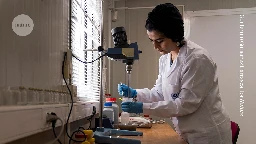
- Dopamine-mediated interactions between short- and long-term memory dynamicswww.nature.com Dopamine-mediated interactions between short- and long-term memory dynamics - Nature
In dynamic environments, animals make behavioral decisions based on the innate valences of sensory cues and information learnt about these cues across multiple timescales1–3. However, it remains unclear how the innate valence of a sensory stimulus affects acquisition of learnt valence information an...
- AI & robotics briefing: Digital primordial soup creates ‘computational life’www.nature.com AI & robotics briefing: Digital primordial soup creates ‘computational life’
Self-replicating programs can emerge from a random soup of tens of thousands of pieces of computer code. Plus, how astronomers unmask deepfakes and did AlphaFold really solve protein folding?

- Inflammation averted by adhesive coating on implantswww.nature.com Inflammation averted by adhesive coating on implants
A sticky layer that bonds implants to tissue prevents formation of a fibrous capsule at the implant–tissue interface.
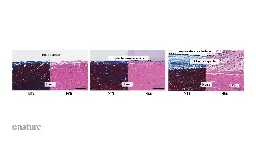
- Daily briefing: Where US presidential contender Kamala Harris stands on sciencewww.nature.com Daily briefing: Where US presidential contender Kamala Harris stands on science
The US vice-president has stood up for maternal health issues and for improving the diversity of the scientific workforce. Plus, a mysterious source of ‘dark oxygen’ discovered on the sea floor.

- Heaviest element yet within reach after major breakthroughwww.nature.com Heaviest element yet within reach after major breakthrough
Success with a new route to producing superheavy elements paves the way to making the elusive element 120.
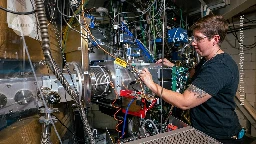
- Why US–China relations are too important to be left to politicianswww.nature.com Why US–China relations are too important to be left to politicians
In an age of geopolitical tensions, researchers need to be realistic and think beyond fundamental science to chart a safe path for collaboration.
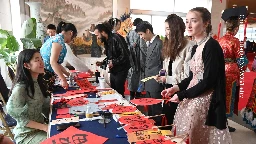
- A stroke derailed my academic career. Now I’m getting back on trackwww.nature.com A stroke derailed my academic career. Now I’m getting back on track
A brain haemorrhage late in pregnancy upended Parisa Hosseinzadeh’s life — and her tenure clock. Thanks to supportive physicians, family and colleagues, she’s restarting her academic career.
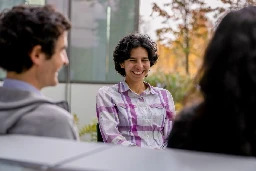
- Boost French research by increasing freedom for scientists and universitieswww.nature.com Boost French research by increasing freedom for scientists and universities
The new French government should support education and research by improving budgets.

- Hijacked journals are still a threat — here’s what publishers can do about themwww.nature.com Hijacked journals are still a threat — here’s what publishers can do about them
A long-standing problem that affects publishers and authors alike, journal hijacking can damage reputations and steal article-processing fees.
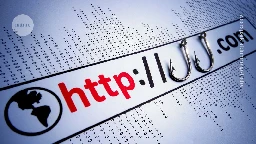
- Google AI predicts long-term climate trends and weather — in minuteswww.nature.com Google AI predicts long-term climate trends and weather — in minutes
Models that are more reliable and less energy-intensive could help us to better prepare for extreme weather.
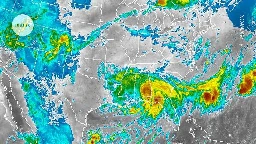
- Why you should perform a premortem on your researchwww.nature.com Why you should perform a premortem on your research
Carsten Lund Pedersen introduces a tool for improving the success rate of your papers, projects and partnerships.

- This glowing speck is a freezing exoplanet six times the size of Jupiterwww.nature.com This glowing speck is a freezing exoplanet six times the size of Jupiter
One of the closest extrasolar planets to our Solar System is the most frigid ever to be directly imaged.
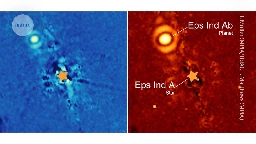
- Science must protect thinking time in a world of instant communicationwww.nature.com Science must protect thinking time in a world of instant communication
E-mails and instant messaging are core to research — but also a distraction. Researchers should study their impact on science, and how they can claw back time to concentrate.

- Cancer spread in the liver is unlocked from withinwww.nature.com Cancer spread in the liver is unlocked from within
How healthy cells influence whether cancer spreads at a secondary site.
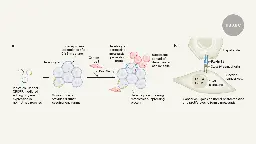
- AI produces gibberish when trained on too much AI-generated datawww.nature.com AI produces gibberish when trained on too much AI-generated data
Generative-AI models collapse when trained recursively.
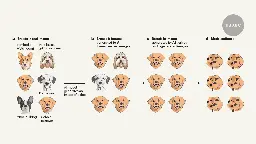
- How does the spliceosome dismantle itself?www.nature.com How does the spliceosome dismantle itself?
Structural evidence reveals key steps during spliceosome disassembly.
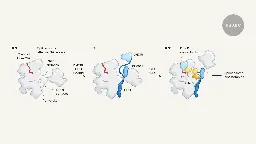
- So you got a null result. Will anyone publish it?www.nature.com So you got a null result. Will anyone publish it?
Researchers have tried a bunch of strategies to get more negative results into the literature. Nature asks whether they are working.
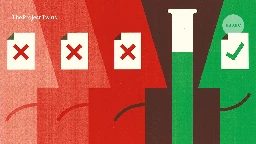
- Forests don’t just absorb CO<sub>2</sub> — they also take up methanewww.nature.com Forests don’t just absorb CO2 — they also take up methane
Methane flux quantified at the woody surfaces of upland trees.
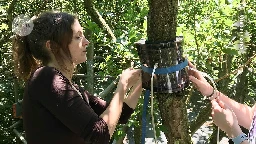
- The ape Y chromosome evolves extremely rapidly, but the X chromosome is conservedwww.nature.com The ape Y chromosome evolves extremely rapidly, but the X chromosome is conserved
The complete genome sequences enable inter-species comparisons.
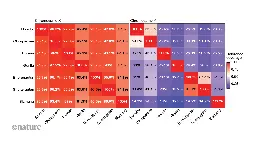
- Daily briefing: Hybrid AI supercharges climate modelswww.nature.com Daily briefing: Hybrid AI supercharges climate models
Google AI predicts long-term climate trends and weather — in minutes. Plus, heaviest element yet within reach after major breakthrough and how to bring null results out of hiding.
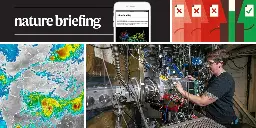
- Exclusive: the Trump administration demoted this climate scientist — now she wants reformwww.nature.com Exclusive: the Trump administration demoted this climate scientist — now she wants reform
Virginia Burkett has filed a whistle-blower complaint, asking for an investigation and better policies to protect scientists against political interference.
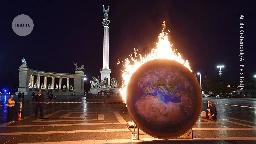
- AI models fed AI-generated data quickly spew nonsensewww.nature.com AI models fed AI-generated data quickly spew nonsense
Researchers gave successive versions of a large language model information produced by previous generations of the AI — and observed rapid collapse.
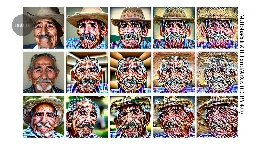
- Carbon pricing reduces emissionswww.nature.com Carbon pricing reduces emissions
Meta-analysis of carbon-pricing strategies around the world.

- Motor neurons move a fly’s head in different directions depending on its starting posturewww.nature.com Motor neurons move a fly’s head in different directions depending on its starting posture
Motor neurons generate movement that depends on the initial head posture, moving the head towards a determined position.
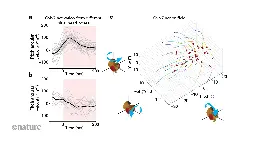
- How do placebos ease pain? Mouse brain study offers clueswww.nature.com How do placebos ease pain? Mouse brain study offers clues
The discovery of a brain circuit involved in the pain-relieving effect of placebos could lead to improved treatments.

- Rapid sepsis test identifies bacteria that spark life-threatening infectionwww.nature.com Rapid sepsis test identifies bacteria that spark life-threatening infection
Hear the biggest stories from the world of science | 24 July 2024

- SMYD5 methylation of rpL40 links ribosomal output to gastric cancerwww.nature.com SMYD5 methylation of rpL40 links ribosomal output to gastric cancer - Nature
The lysine methyltransferase SMYD5 and its newly identified substrate ribosomal protein L40 are implicated in the progression of gastric adenocarcinoma, and ablation of SMYD5 prevents metastatic disease in mouse models of this cancer.
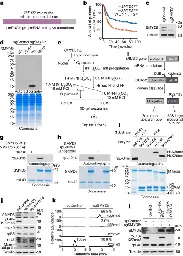
- TMEFF1 is a neuron-specific restriction factor for herpes simplex viruswww.nature.com TMEFF1 is a neuron-specific restriction factor for herpes simplex virus - Nature
A study identifies TMEFF1 as a neuron-specific restriction factor essential for prevention of replication of herpes simplex virus type 1 in the central nervous system.
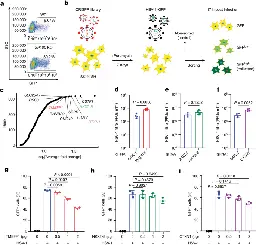
- In vivo interaction screening reveals liver-derived constraints to metastasiswww.nature.com In vivo interaction screening reveals liver-derived constraints to metastasis - Nature
Interactions between plexin B2 on hepatocytes and sempahorins on disseminated tumour cells regulate metastatic seeding in the liver.
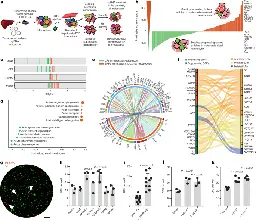
- <i>peri</i>-Fused polyaromatic molecular contacts for perovskite solar cellswww.nature.com peri-Fused polyaromatic molecular contacts for perovskite solar cells - Nature
A peri-fused polyaromatic core structure is used to produce a relatively chemically inert and structurally rigid molecular contact that improves the efficiency and durability of perovskite solar cells.
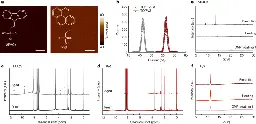
- Global atmospheric methane uptake by upland tree woody surfaceswww.nature.com Global atmospheric methane uptake by upland tree woody surfaces - Nature
Studies of in situ woody surface methane exchange in upland tropical, temperate and boreal forest trees find that methane uptake can result in a net tree methane sink that is globally significant and demonstrates an additional climate benefit provided by trees.
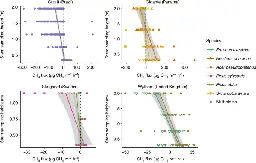
- Neoantigen-specific cytotoxic Tr1 CD4 T cells suppress cancer immunotherapywww.nature.com Neoantigen-specific cytotoxic Tr1 CD4 T cells suppress cancer immunotherapy - Nature
Type 1 regulatory T cells (Tr1) represent a major obstacle that compromises naturally occurring and therapeutically induced tumour-specific immunity.
